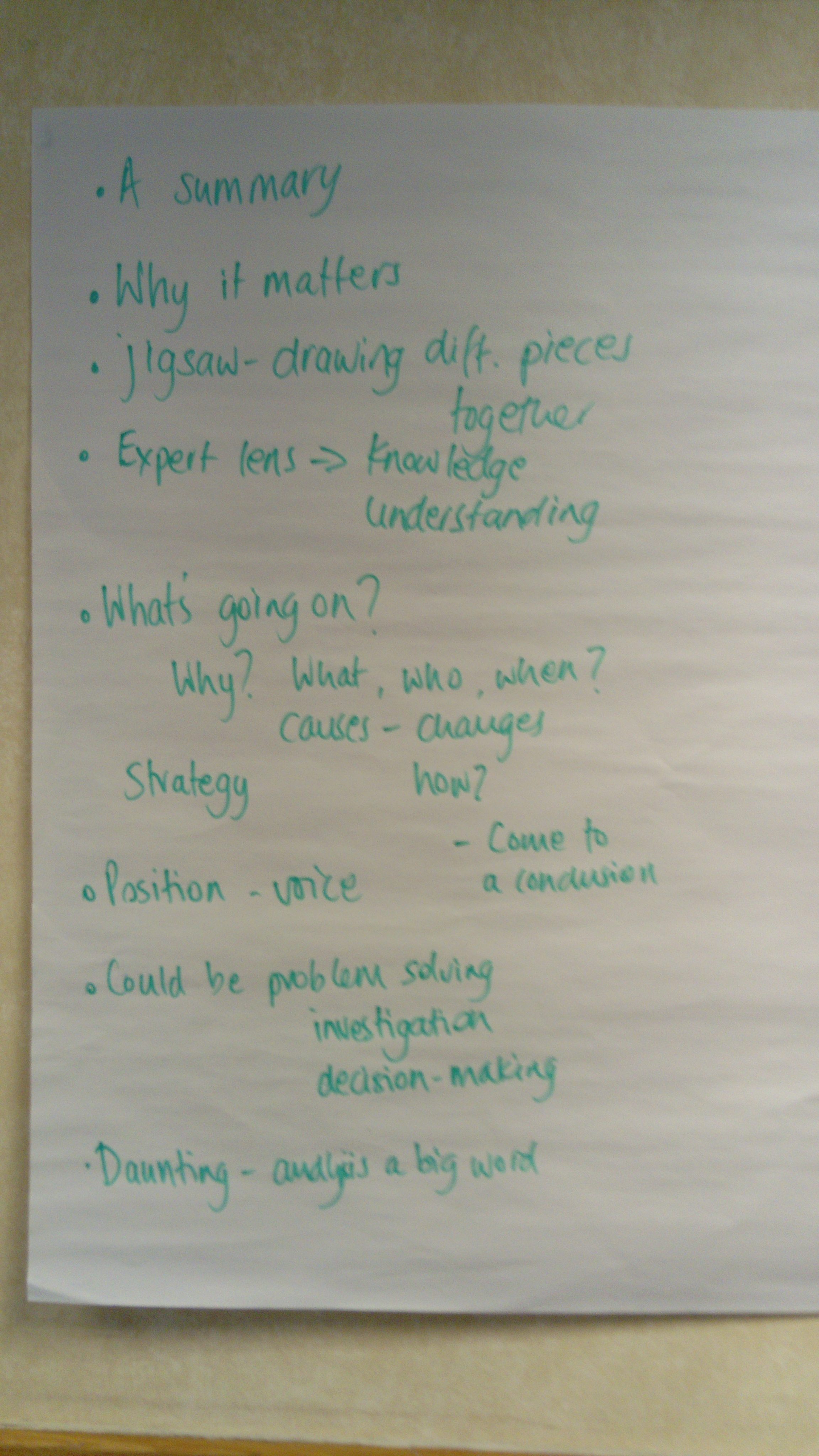One of the biggest challenges for social workers in report writing is the balance of analysis vs description. Analysis can often also be confused with summary. For some, being told to analyse can be daunting particularly when further direction is not provided. Equally unhelpful can be being told your work is too descriptive but without being given any specific guidance or examples of what that means. During the wisp workshop we reflected on this using some examples of reports to help us. One person pointed out that social workers are analysing just in the process of deciding what to include within a report. Participants had varying definitions of analysis; ‘interpretation’, ‘professional perspective’, ‘use of evidence’, ‘critical reflection’, ‘investigation’, filling in the jigsaw.
My view is that a good analytical piece of work should not leave the reader with unanswered questions but instead any point that is made should be fully explored with purpose and meaning clearly identifiable. When discussing the examples, there was consensus on what was unhelpful, for example, providing a description of an event and then attempting to analyse what this meant, without bringing the reader on the journey in which that analysis was drawn. This left the reader confused and the author consequently unreliable, which in social work could have serious implications. Supporting workers to write analytically should help them to write more concisely thus helping them to be more effective with their time, something ever increasingly important. Ultimately however the most important thing is that workers are equipped to write in a way that ensures service users are fairly and accurately represented in reports with sound and coherent professional reasoning evident.

Comments
No comment